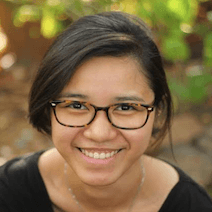SUMMARY
This is AI generated summarization, which may have errors. For context, always refer to the full article.
![[OPINION] We should stop calling it the ‘drug war’](https://www.rappler.com/tachyon/r3-assets/612F469A6EA84F6BAE882D2B94A4B421/img/19C89DCD352848759562391CE0668A2E/stop-using-the-term-drug-war-july-24-2019.jpg)

“Nalilimot ng bawat isa sa inyo na habang napag-iingatan ng isang bayan ang kanyang wika, napag-iingatan din nito ang katibayan ng kaniyang paglaya, katulad ng pagpapanatili ng isang tao sa kaniyang kasarinlan, upang mapanatili niya ang kaniyang sariling paraan ng pag-iisip. Ang wika ang pag-iisip ng bayan.” – Dr Jose Rizal
In a country whose biggest revolutions were sparked by two novels and the Bible, the power of language is glaring: We are defined by the words we speak. A few generations after the revolution of the Katipunan and decades after the revolution in EDSA, another set of words attempts to shape the consciousness of our nation — only this time, it calls for the opposite of liberation.
A tactic disguised as crisis, our “war” against drugs has only ever called for the incarceration of our brothers and sisters, victims to the disease of addiction.
We should really stop calling it the drug “war.”
Granted, drugs really are a problem in the Philippines
Duterte was right to decry the dangers of drugs. Addiction is a disease that impairs one’s physical and mental abilities. Especially when left untreated, drug use can become insufferable and life-threatening.
However, the disease of addiction is not a choice and is treatable. While addiction may be a result of a series of poor choices, it is ultimately caused by factors that include one’s genetics, environment, social conflict, and more. In the same way, this can be likened to a heart disease partly caused by one’s choice to have an unhealthy diet or lack of exercise.
Drug users with a mild disorder can recover with little to no treatment. Those with more serious disorders can recover with proper treatment and rehabilitation.
While Duterte argues that our country was becoming a “narco-state,” having supposedly almost 4 million drug addicts since 2015, official statistics from the latest survey of the Philippine Dangerous Drugs Board (DDB) show drug use in the country isn’t even half this number. (READ: DDB: Philippines has 1.8 million current drug users).
The DDB also states at least 90% of detained drug users during President Duterte’s administration possess only low-risk use disorder. Besides, there has been much effort of late to come up with effective (and humane) approaches to drug use.
One shining example is Professor Regina Hechanova and her team’s 12 modules for drug recovery. Their results show actual evidence of effectivity, more than any time served in prison by far. (READ: Psych interventions needed in drug rehab programs – expert)
While the drug problem in our country is absolutely real and concerning, it isn’t as aggrandized as Duterte denounces it to be.
The power of language
The problem with framing this as a nationwide “war” is that it garners a sense of urgency that calls for radical violence.
This label cultivates a public panic that seems only answerable by all the gore that comes with an actual war. It is this heightened collective anxiety that supposedly justifies genocide as a solution to a seemingly unsolvable crisis.
Because ethics become muddy in war, calling it one attempts to clear our conscience of eliminating the victim instead of the disease; the life instead of the condition.
Calling it a war presumes the disease is untreatable. Calling it a war says there is no other hope beyond loading pistols, hopping on motorcycles, and pulling triggers to check names off lists.
Calling it a war creates the war we so terribly fear: The war we are conditioned to fear, the war that celebrates the unnecessary murders of our neighbors, classmates, mayors, mothers, and more.
It is not a war
How can you call it a “war” when most of its victims are the poorest of the poor? Not the drug lords, but the defenseless?
How can you call it a “war” when these victims’ homes are raided when they’re most vulnerable, at night, just when they’re about to sleep?
How can you call it a “war” when only one side has a gun, and the other left to run?
It’s been over 5,500 bodies too many. And we don’t even know if this number is accurate.
Mayroong dahilan kung bakit ang ating pambansang bayani ay si Jose Rizal – na namuhay na mandirigmang hindi sundalo, kundi manunulat. (There’s a reason why Jose Rizal is our national hero – who fought not as a soldier, but as a writer.)
This reason is that we Filipinos recognize the power of the written word to express one’s identity, organize peoples, and spark revolutions. We have hope for peace that need not necessitate bloodshed. We recognize that, in the highlights of our country’s history, in our most legendary revolutions, the pen really was mightier than the bolo.
And it still is.
We need to stop letting this word have power over us. We are not at war. – Rappler.com
Angelica Sinay is a freshman studying Mathematics in the University of Pennsylvania. She is a Rappler intern.
Add a comment
How does this make you feel?
There are no comments yet. Add your comment to start the conversation.